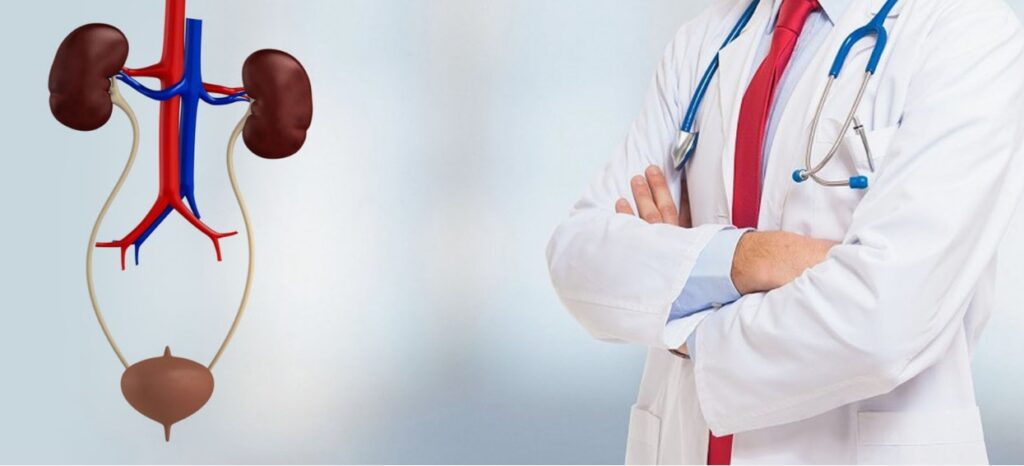When it comes to health issues, many people often overlook urological problems, assuming they are rare or only affect older adults. However, urological conditions are more common than you might think, affecting men, women, and children alike. From urinary tract infections (UTIs) to kidney stones and incontinence, understanding these problems can help you seek timely treatment and maintain better overall health. Here’s a closer look at common urology issues, their symptoms, and treatment options, with insights from Urology Partners of North Texas.
What is Urology?
Urology is the medical specialty focused on diagnosing and treating diseases related to the urinary tract system and the male reproductive system. The urinary tract includes the kidneys, bladder, ureters, and urethra, all of which work together to remove waste from the body through urine. For men, urology also deals with the prostate, testes, and penis.
Urologists, such as those at Urology Partners of North Texas, are specialists in these areas and can help with a wide range of issues that might affect daily life, including urination, sexual function, and pain management.
Common Urology Problems
Here are some of the most common urology problems that can affect both men and women:
1. Urinary Tract Infections (UTIs)
Urinary tract infections are among the most frequent urological issues, particularly for women. A UTI occurs when bacteria, usually E. coli, enters the urinary tract and causes an infection. Symptoms include a frequent urge to urinate, pain or burning during urination, and cloudy or strong-smelling urine. In some cases, UTIs can lead to more serious infections in the kidneys if left untreated.
UTIs are often treated with antibiotics, and proper hydration can help flush out bacteria from the system. It’s important to seek medical attention if symptoms persist, as untreated UTIs can cause complications, especially in children and older adults.
2. Kidney Stones
Kidney stones are another common urological problem, and they can cause significant discomfort. These hard deposits form in the kidneys and can vary in size. While small stones may pass on their own through urine, larger stones can cause severe pain as they move through the urinary tract. Symptoms of kidney stones include sharp pain in the lower back or abdomen, nausea, and blood in the urine.
Treatment for kidney stones depends on their size and location. In some cases, doctors may recommend increased fluid intake to help pass the stone, while larger stones may require medical intervention such as shock wave lithotripsy, which breaks the stones into smaller, passable fragments.
3. Incontinence
Urinary incontinence, or the loss of bladder control, is a condition that can affect people of all ages but is more common in older adults and women. It can be caused by a range of factors, including weakened pelvic floor muscles, pregnancy, and prostate issues in men.
There are several types of incontinence, including stress incontinence (leakage during physical activities like coughing or sneezing) and urge incontinence (a sudden, intense need to urinate). Treatment options range from lifestyle changes and pelvic floor exercises to medication or surgery, depending on the severity of the condition. Visit: 1st-street.com
4. Prostate Problems
Prostate issues are common among men, particularly as they age. The prostate gland, which helps produce semen, can become enlarged, inflamed, or develop cancer.
- Benign Prostatic Hyperplasia (BPH): BPH is a non-cancerous enlargement of the prostate that can cause symptoms such as frequent urination, difficulty starting and stopping urine flow, and weak urine streams. While not life-threatening, BPH can significantly affect a man’s quality of life. Treatments include medications, lifestyle changes, or surgical options in severe cases.
- Prostatitis: This refers to inflammation of the prostate, often caused by bacterial infections. Symptoms include painful urination, pelvic pain, and flu-like symptoms in the case of an acute infection. Prostatitis can usually be treated with antibiotics or other medications to manage inflammation.
- Prostate Cancer: Prostate cancer is one of the most common cancers in men. Early stages often have no symptoms, which is why regular check-ups and screenings are essential. When symptoms do occur, they can include difficulty urinating, blood in the urine, or erectile dysfunction. Treatment for prostate cancer depends on the stage of the disease and can range from monitoring to surgery, radiation, or hormone therapy.
5. Erectile Dysfunction (ED)
Erectile dysfunction is the inability to achieve or maintain an erection sufficient for sexual activity. While ED can be an embarrassing issue to discuss, it’s actually a very common condition, particularly in older men. ED can be caused by a variety of factors, including underlying health conditions such as diabetes, cardiovascular disease, or hormonal imbalances.
Treatment for ED may involve lifestyle changes, medications like phosphodiesterase inhibitors (e.g., Viagra), or addressing the underlying cause of the condition through therapy or other medical interventions.
When to See a Urologist
While some urology issues may be mild and treatable at home, it’s important to know when to seek professional help. If you experience persistent or severe symptoms such as painful urination, blood in your urine, frequent urges to urinate, or difficulty urinating, it’s time to see a urologist. Urologists can perform tests, such as urine analysis, blood tests, or imaging studies, to diagnose the issue and recommend appropriate treatments.
Conclusion
Understanding common urology problems is the first step in taking control of your health. From UTIs and kidney stones to prostate issues and incontinence, these conditions can significantly impact daily life if left untreated. Seeking timely medical advice from a urology specialist, such as those at Urology Partners of North Texas, can help you manage these problems effectively. For more information or to book an appointment, visit upnt.com.



